
Jahi Di’Allo Winston may be relatively unknown to audiences around the world, but this young actor is slowly making his presence known in Hollywood.
The star got his first break as Young Simba in “The Lion King” broadway at the mere age of 11. After the theatre run ended in 2016, he’s been involved in several film and TV projects – including “Feed the Beast” (opposite David Schwimmer) and the Jim Jarmusch zombie satire, “The Dead Don’t Die”.
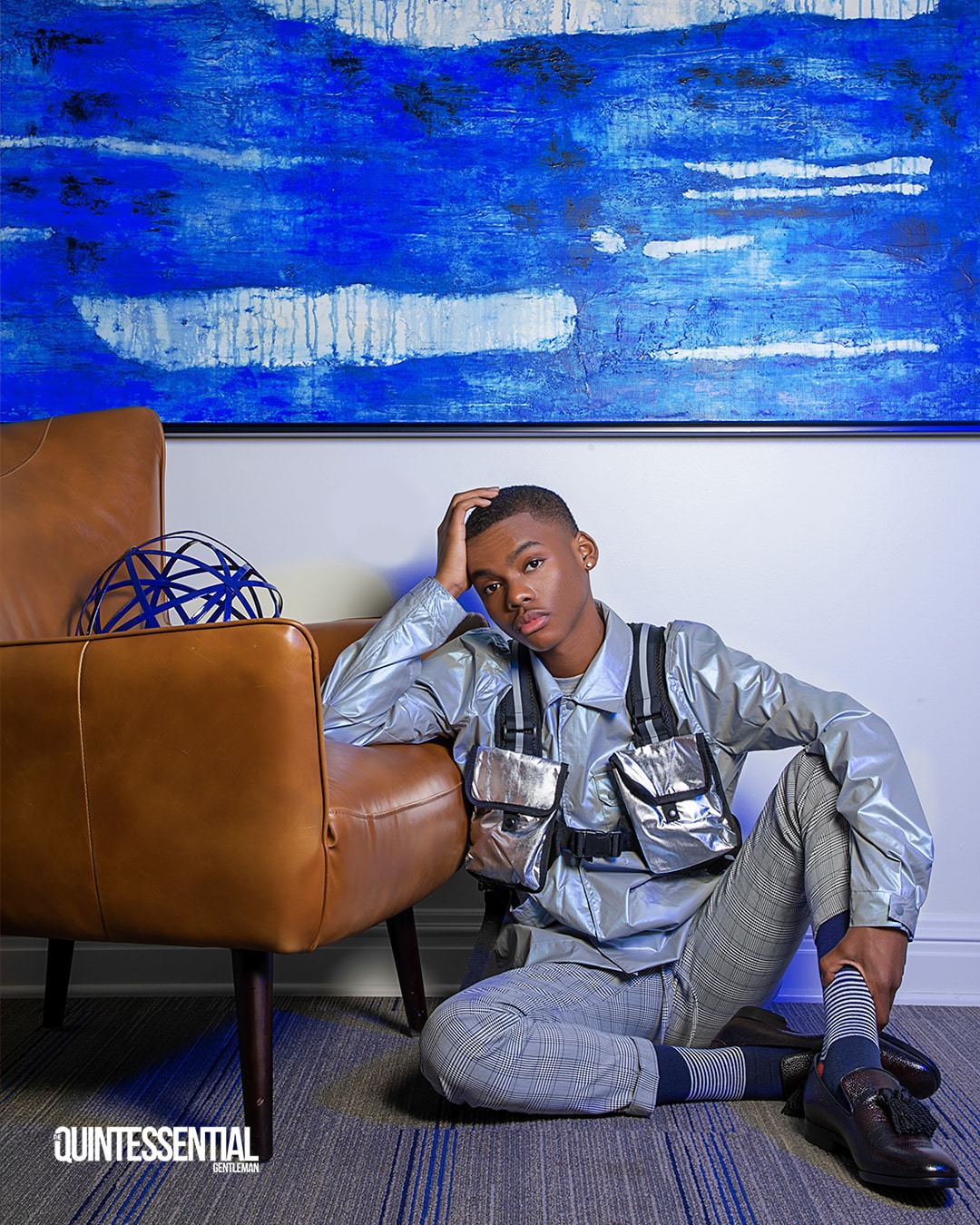
You can soon catch him in “Charm City Kings” where he plays a young boy from a poor Baltimore neighbourhood named Mouse, who longs to join a crew of amateur dirt-bike stuntmen. It is based on a story partly written by “Moonlight” director Barry Jenkins and a fictional interpretation of Lotfy Nathan’s acclaimed 2013 documentary “12 O’Clock Boys”.
There’s already been rave reviews on Jahi Di’Allo Winston’s performance in this coming-of-age film. In this interview, the 17-year-old talks about how he delved into character of Mouse, the dirt-bike culture in Baltimore, and more.
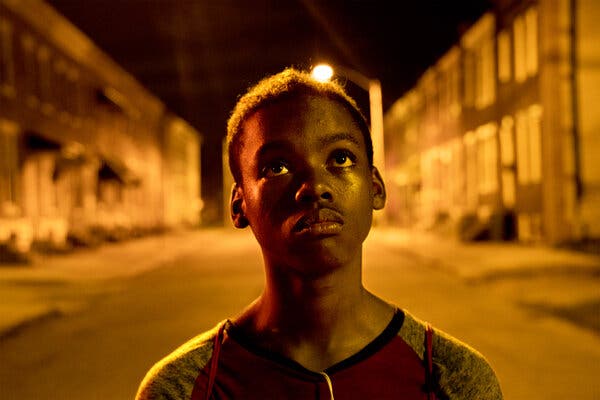
Q: What was the process of getting cast at Mouse in “Charm City Kings”?
A: My agent sent me a breakdown for the role and the script, which I sort of put off reading for a little bit. But when I finally read it, I loved the simplicity of the story and yet how complex it was, as well. I went to LA to screen test. In the room in LA was where I met Donielle Tremaine Hansley “Lil Dee Dee” and Kezii Curtis who play Lamont and Sweartagawd, and that chemistry we had sort of solidified it for me, I was like, this is something special. Maybe, a week later, I got the call that they wanted me to be Mouse.
Q: How important was the chemistry?
A: The chemistry between Lamont, Sweartagawd and Mouse is really the heart of the film. If those relationships don’t work then the film comes off as very contrived, manufactured and not organic at all. I think all of us knew in the room that we had something special because although we didn’t know each other before that audition, as soon as they said action, it was just magic. I think that’s the magic of getting together and all equally wanting something and wanting to do a good job at it. We carried that throughout filming the movie. We had a great time. We would go back to the hotel and play video games and laugh and talk.
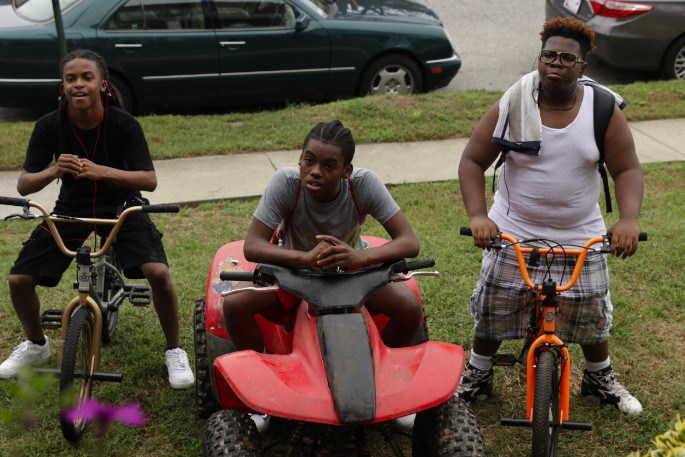
Q: What did you like about Mouse as a character?
A: I liked the symbolism of it: the fact that he was sort of this minuscule being in this really large and complex world. He was literally like a mouse in the midst of this dynamic environment. It was fascinating to tell the story through his eyes. Also, the fact that he had many different facets that I could bring out and for me as an actor that was really appealing and attractive.
Q: How was Mouse’s change from being young and naïve, then falling in love, before switching to becoming a tougher character important?
A: All those things have to be there. Because we’ve all been there, at that sort of adolescent stage where we think we know everything. My goal was to convince the audience that Mouse is no different from the white suburban kid who you see in almost every other coming-of-age story. In his circumstances and systemically things are different for him, but at his core, he’s no different from any of the characters in “Stand By Me”. But society sees him as a statistic. We can change that by the way we portray this type of character and by the way we analyse who this kid is, seeing him as someone who is a fully layered, complex human being with goals and dreams, who wants validation from the girl he likes, just like every other teenage kid.
Q: What research did you do about the dirt-bike scene in Baltimore?
A: Our source of reference for the film was the “12 O’Clock Boys” documentary by Lofty Nathan. I watched it a lot of times to get accustomed to the dialect and the eccentricities of the people who live in Baltimore. And the more I did that, the better I was able to allow myself to get fully immersed into the culture of the city and its dirt-bike community. Also, us being in Baltimore every single day filming the movie was incredible. It was my first time there and it didn’t disappoint. For me, as an actor, and as an artist, I had a lot of fun being amongst the everyday Baltimore citizens, and it helped enhance my performance, for sure.
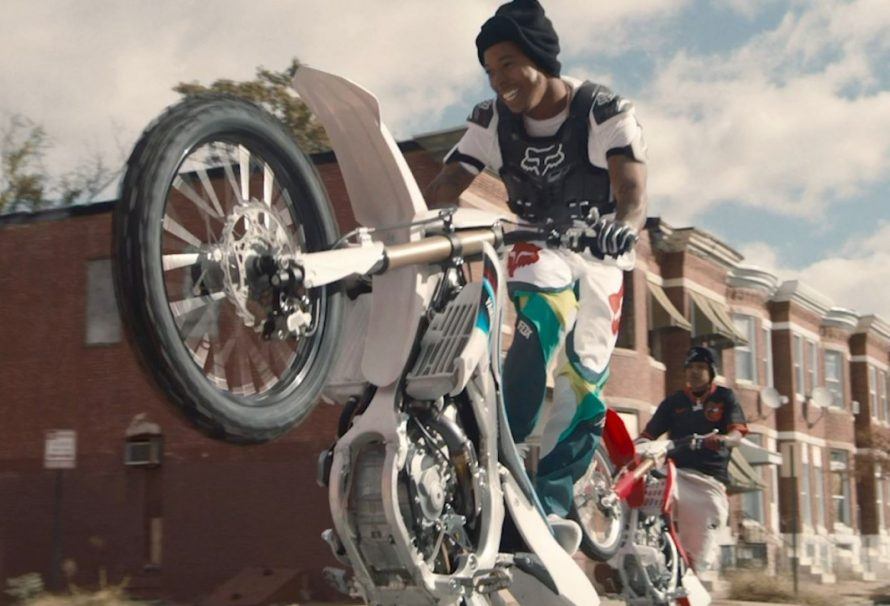
Q: Did you know a lot about dirt-bikes? Are you a fan of riding and doing stunts?
A: Not necessarily. I mean, I was hesitant before I read the script. A story involving bikes and the hood seemed like a gimmick. But when I read the script, and then found out that dirt-bike culture, which seemed mildly controversial and a taboo thing, was so loved and lauded it was really appealing to me; the love and the affection that they have for bike riding is beautiful. It’s not just a hobby for them; it’s a lifestyle. I was like, this is something that I should probably latch myself onto.
Q: And how did you latch onto the dirt-bike culture?
A: I watched a lot of YouTube videos of the kids in the city talking about bikes and their love for bikes. My dialect coach referred me to various kids who are part of the dirt bike culture in Baltimore. Dirt-bike culture is significant around the globe, but because this tale is particular to West Baltimore, I never really wanted to leave the parameters of West Baltimore. For Mouse, his everyday life is small. So, I tried to stay in the perimeters of the four blocks in West Baltimore.
Q: What did you discuss with director Angel Manuel Soto?
A: Angel and I had a lot of conversations. I spent the most time with him because we both worked every day together. We never really had any full out arguments or anything about how scenes should go, but I challenged him on some things just because I’m an actor, and I’m an artist, and I’m serious about whatever I do. For us, getting on the same page was a matter of both of us being willing to understand where the other was coming from and see that we both wanted it to be great.
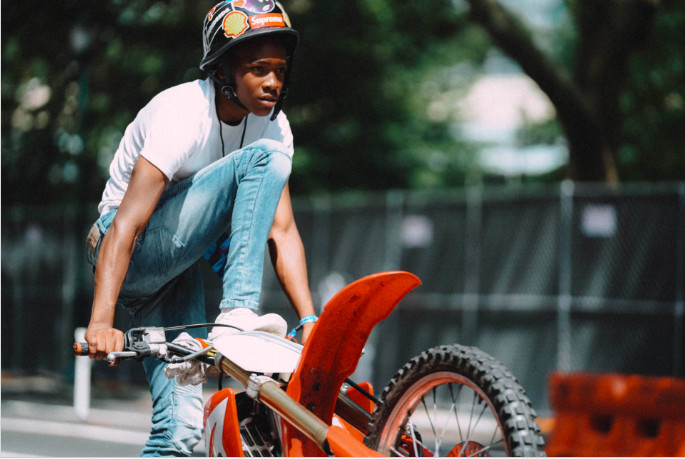
Q: What was particularly memorable during the shoot?
A: Every day was memorable, but I think, overall, all of the ride scenes were memorable and stressful. Every time we did those, it was incredible being able to watch the bikers do their thing, even if sometimes it was hard to know which areas were part of our set because in Baltimore these riders are just there. I had no desire to get on a bike or learn how to ride. I was excited about being around the bikes as much as possible. I was like, “okay, y’all do your thing,” I’m here to pretend and not actually drive.
Q: You said you wanted Mouse to be just like any white suburban teenager we see in films. And this film is excellent in the way it deals with race without necessarily talking directly about race. How did you achieve that?
A: Well, I think that has more to do with our writer, Sherman Payne, director Angel and producer Caleeb Pinkett. I love that we didn’t attack race head-on because, as Caleeb says, when you’re disenfranchised, when you are poor, or impoverished in any kind of way, you’re not walking around every day thinking it’s me and my violin. You don’t even know your situation because everyone around you is experiencing the same thing. So, you don’t have any sort of idea of anything different than what your everyday experience is. Knowing that made it a lot easier because I didn’t feel like I had to come in and be didactic in any way, I was just able to be an artist and create. I hate using the word political, but every political message attached to it is there because Baltimore, in itself, is already a city that draws a lot of political opinions. And what we wanted to do is show the humanity in the town.
Q: Do you see the film as a tragedy or an uplifting tale?
A: Both. It’s all of those things. It’s supposed to be tragic and it’s supposed to be uplifting as well. I think one of the things that we were trying to do was show that not every story ends in the guy getting the girl in real life. It doesn’t happen that way. But in our film and us being artists, we are showing the what-ifs, what if it can be like this? And what if it didn’t have to end with this kid’s life being completely ruined and tragic? These communities do have a tragic element, but there’s a nuance and duality that exists there as well. And trying to find that as an artist was the most important thing. How are we able to tell the story so it’s not a woe-is-me moment and instead, makes it that people watching have a better understanding of every single person in Mouse’s situation.
“Charm City Kings” premieres on 9th March at 9pm on HBO GO and HBO (Astro Ch 411 HD).
The post Interview: Jahi Di’Allo Winston On “Charm City Kings” & The Dirt-bike Culture appeared first on Hype Malaysia.
0 Comments